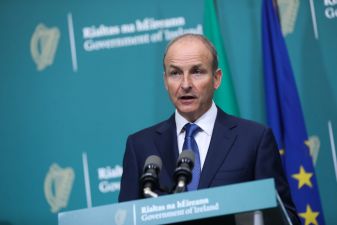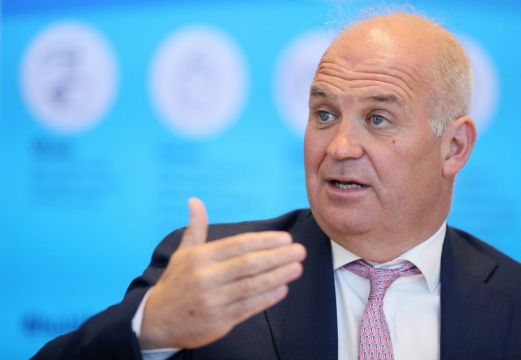Up to 5,000 new Covid-19 cases could be recorded per day this month under a “central” scenario modelled by the National Public Health Emergency Team (Nphet).
The Irish Times reports that under central scenarios as the country reopens, 3,000 to 5,000 cases per day will be seen, bringing 750 to 1,300 hospitalisations and 150 to 250 people needing critical care.
Under an “optimistic” scenario, modelling shows 2,500 to 3,000 cases per day next month, and peaks of between 500 to 700 in hospital and 80 to 130 needing intensive care.
In a letter to the Minister for Health containing the modelling, chief medical officer (CMO) Dr Tony Holohan wrote the Delta variant “is significantly more transmissible and less susceptible to vaccines than previous variants”.
He said there is uncertainty about the length of immunity, the long-term consequences of infection, and that Covid would be a global challenge for some time to come.
Reintroduction of restrictions
Dr Holohan wrote that from past experience, he could not “fully rule out” the reintroduction of restrictions in the future.
The letter warned that the situation in Ireland was one of “high incidence with an uncertain trajectory.”
Dr Holohan said that while the disease may plateau in the coming weeks, there were “at least transient” increases expected to arise from the reopening of schools and higher education.
He said concern centred on additional movement and social contact around schools and colleges, rather than possible transmission in educational settings.
“It is very likely that the Delta variant will continue to circulate extensively throughout the autumn and potentially later in the year, particularly among individuals that have not yet been vaccinated,” Dr Holohan wrote in the letter sent last week and published on Tuesday.
“This poses a very substantial threat, particularly to those who are not yet fully protected through vaccination.”
Reopening criteria
Dr Holohan outlined an extensive series of criteria that should be met before moving to the next phase of reopening.

These included a target of “at least” 90 per cent of over-16s being vaccinated, an absence of new variants of concern and for indicators such as the numbers in hospital and intensive care to be under control.
Dr Holohan advised that the vaccination programme would “facilitate a transition in our approach to dealing with the pandemic” over the medium term, with measures to combat the pandemic “increasingly” being voluntary.
A range of measures should be retained until next Spring, including wearing masks in healthcare settings, indoor retail and on public transport, while they should be encouraged based on individual risk assessment.
Government sources said the path that the Coalition had chosen was “different not divergent” from Nphet’s advice and that any variations were “slight”.







